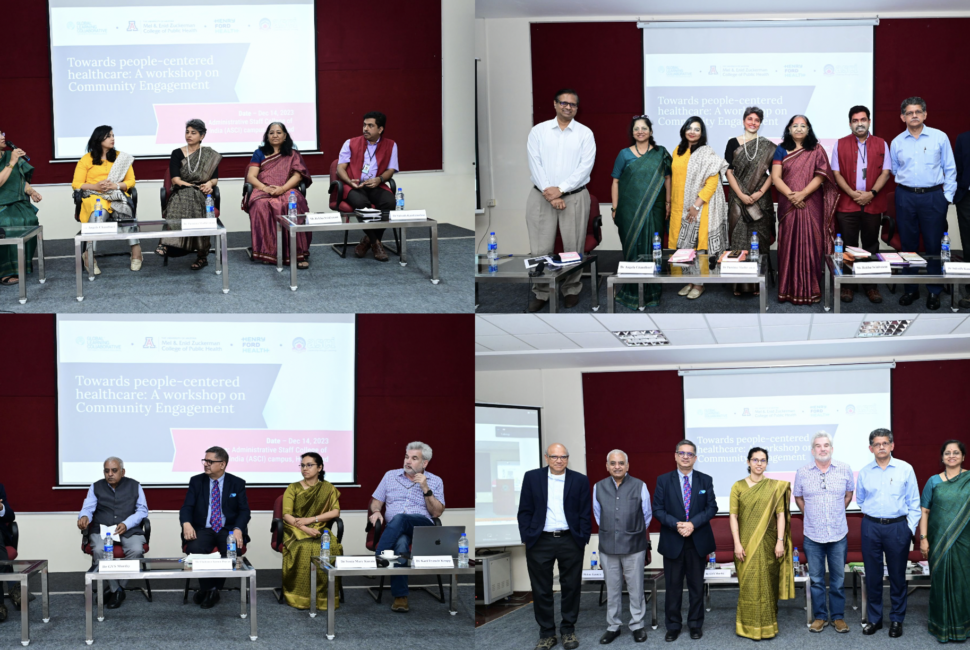Building People-centered Health Systems: Insights from GLC4HSR’s Workshop on Community Engagement

The Global Learning Collaborative for Health Systems Resilience organized a workshop “Towards People-Centered Healthcare: A Workshop on Community Engagement.” The half-day event was a collaborative effort by GLC4HSR, the University of Arizona’s Mel and Enid Zuckerman College of Public Health, the Administrative Staff College of India (ASCI), and Henry Ford Health.
The workshop featured a distinguished lineup of speakers who delved into the pivotal role of community engagement in fostering more resilient health systems. Through insightful discussions, they provided clarity on the concept of community engagement and its practical implementation in real-world scenarios. The exploration also extended to understanding diverse community perspectives, including those of special interest groups, self-help groups, community health volunteers, civil society organizations, and the media.
The first session of the workshop brought out insights that included:
- The role of community engagement, trust, and understanding unique local needs in healthcare interventions
- The need to shift from just clinical care to a broader perspective on health, addressing emotional, psychological, and societal aspects
- Leveraging technology, like apps and online platforms, for training, data access, and service delivery while emphasizing adaptability and continuous learning
- Addressing funding instabilities, the importance of sustainable models, and the potential of leveraging cultural and social capital, especially during crises
- Need to advocate for team-based care models, integrating frontline workers, specialists, and communities, and recognizing the invaluable role of grassroots leaders and health workers
- Highlighting the need for culturally relevant practices, addressing misconceptions, and ensuring effective communication tailored to community nuances
The insights from the second session included:
- Community empowerment, both from external players as well as community-managed programs, plays a very important role in engaging the communities
- Community engagement and communications need to be adaptive and accurate in the ever-changing post-COVID landscape
- The requirement to but a culture of communication with the patients for all health service providers, especially doctors
- A reminder that the healthcare providers are a part of the community and should not separate themselves to build trust and be able to empower the community
- Decentralization of care models can play an important role in helping nurture a culture of communication for community engagement
The event saw a robust turnout, as over 125 participants actively engaged both in person and online.

